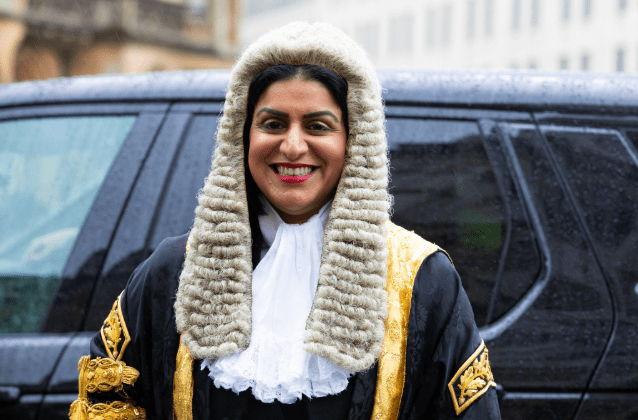Justice Secretary Shabana Mahmood is under fire for her handling of a growing dispute over sentencing reforms, with senior political figures accusing her of worsening tensions through public posturing rather than quiet diplomacy.
Former Justice Secretary Sir Robert Buckland accused Ms Mahmood of engaging in “megaphone diplomacy” over the Sentencing Council’s new guidance, suggesting her actions had done little to calm the political waters.
The criticism follows the Sentencing Council’s release of updated guidance set to take effect from 1 April, which outlines principles for when courts should seek pre-sentence reports before passing custodial or community sentences. The guidance highlights the need for these reports, particularly when dealing with individuals from ethnic, cultural or faith minorities, alongside young adults (aged 18–25), women, and pregnant women.
Some critics have raised concerns that such provisions may be seen as favouring certain groups, potentially discriminating against those not specifically mentioned.
Despite the Sentencing Council’s refusal to revise the guidance, Ms Mahmood responded firmly, stating “all options are on the table” to challenge the changes.
Sir Robert Buckland: “No Need for the Fuss”
In an interview on BBC Radio 4’s Today programme, Sir Robert defended the Sentencing Council’s position: “The list that you’ve just given, including race and ethnicity, is a non-exhaustive list, and it’s not an exclusive set of principles.”
He went on to praise the use of pre-sentence reports: “I sat in the hotseat as a part-time Crown Court judge, the pre-sentence report is an incredibly useful resource. As Lord Chancellor, I was very supportive of its use.”
Sir Robert stressed that the Justice Secretary’s approach had done little to ease concerns: “I just don’t see what the fuss is about here, and I’m rather concerned that the megaphone diplomacy that I’m seeing being deployed by the Lord Chancellor (Ms Mahmood) isn’t helping the situation one iota.”
Conservative Rifts Emerge
When asked about comments from Conservative figures like Kemi Badenoch and Robert Jenrick, who have accused the government of overseeing a “two-tier” justice system, Sir Robert offered a measured response: “Well, look, I’ve never agreed with this perception that the Prime Minister or anybody is presiding over a two-tier system, we are all equal before the law.”
He cited the government’s swift response to last summer’s riots as proof of an effective and equitable justice system.
Labour Peer Warns Against Hasty Law Change
Meanwhile, Labour peer and former Justice Secretary Lord Falconer echoed some of Ms Mahmood’s concerns but warned the government against acting rashly. “The new guidance gives the impression of an unfair system,” he said, supporting the notion that the Sentencing Council’s recommendations may need reviewing.
However, Lord Falconer strongly advised against emergency legislation to override the Council’s authority. “I wouldn’t be in favour of emergency legislation before the consultation. The reason I’d be against emergency legislation at this stage is because I would take the view that the Government would get themselves into a very difficult position if every time they disagreed with the council’s views, they had emergency legislation”, he told the BBC.
He urged Ms Mahmood to conduct a formal consultation instead of relying on conclusions drawn under the previous administration.






